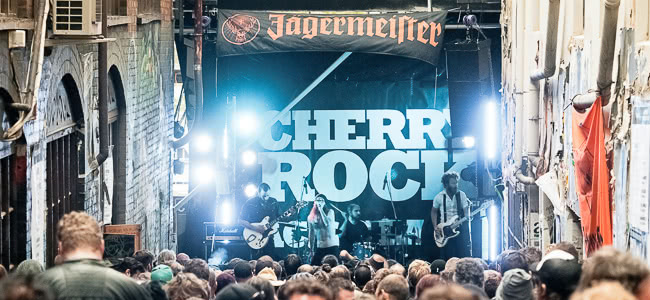Melbourne’s music sector is still seeking the protection it needs from noise complaining residents and a number of the city’s live music venue operators have now urged the State Government to honour its plans to introduce the coveted ‘Agent of Change’ principle.
Despite a promise from Victorian Planning Minister Matthew Guy back in mid-January that the proverbial holy grail of live music reforms would be implemented in “six or seven weeks”, the policy is yet to materialise. And time is running short for some of Melbourne’s prominent live music establishments.
The owners of Cherry Bar in AC/DC Lane and Ding Dong Lounge in Market Lane tell The Age of the increasing threats posed to their respective venues as they await the Napthine Government to fulfil its vow to implement the much-hyped ‘Agent of Change’ policy, which places the onus on residents new to an area to front for expensive soundproofing rather than the current conditions which make it the costly responsibility of a venue.
Complaints from neighbouring residents levelled at Melbourne’s inner-city venues over excessive volumes is hardly a new menace, but the issue is becoming an increasing problem that’s growing in tandem with the rise in property development, bringing the threat of costly soundproofing, fines over noise breaches, and limited trading hours ever closer to the doors of established live music venues.
“It is so sad to see a town that is internationally renowned as the rock and roll city of the world, under stress because of an obsession with increasing population and development,” Cherry Bar’s James Young tells The Age. “Residents need to understand that when living close to a live music venue, there will be noise.”
The AC/DC Lane venue operator is particularly concerned about a new 12-storey, 189-apartment complex at 108 Flinders Lane, that’s set to house new residents this June. The new property could erase patrons’ “opportunity to stand outside and socialise while the music of the venue flows into the vibe of the lane,” Young explains.
“However, if we have to airlock the venue because of noise complaints we will lose that.” Not only the social vibrancy, but the Cherry domo has previously voiced concerns that the upcoming eighth edition of CherryRock 2014 could be the last due to the encroaching apartment complex.
“Residents need to understand that when living close to a live music venue, there will be noise,” says Bill Walsh, the owner of Ding Dong Lounge, who have paid “hundreds of dollars” in fines following ongoing complaints from a single neighbouring resident to the Market Lane hotspot.
Mr Walsh says that while politicians have “been very proactive” by educating people moving into an area to be wary of the live music culture they’re making themselves a part of; “The Liberals have taken a lot of our concerns as a body to heart,” he says.
But as Music Victoria CEO Patrick Donovan explains, property developers are not taking the same considerations in erecting new constructions. “There is no variety in laws and consumers affairs to tell buyers of close-by apartments that they are moving into Melbourne’s music hub,” he says.
Mr Donovan adds that Music Victoria is working with the City of Melbourne council on reworking planning issues and building codes but has also urged the State Government to honour their vow to implement the ‘Agent Of Change’ principle as part of their recent Position and Priorities action plan. The paper outlines 19 key recommendations to the Victoria Government to better support the state’s budding music scene.
The Music Victoria plea arrived just days before the shock news that property developers Jinshan Investments have won the long-fought battle for Melbourne’s Palace Theatre, with news the historic 2,000 capacity venue will shut its doors this May as plans to raze the venue to construct a luxury hotel complex await approval by City Of Melbourne.
Against this backdrop, Sydney’s music industry is pushing for its own live music revival as council officially endorse 57 key recommendations to resuscitate the city’s ailing music scene, still suffering under the oppressive yoke of NSW Premier Barry O’Farrell’s tough lockout laws, curfews, and liquor licensing reforms.




































